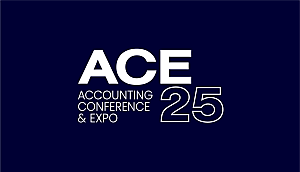A joint submission from Chartered Accountants Australia and New Zealand, the Corporate Tax Association, CPA Australia, the Institute of Public Accountants, the Law Council of Australia, The Tax Institute, and the Self-managed Independent Superannuation Funds Association has called on the government to extend the SG amnesty deadline by six months to 7 March 2021.
You’re out of free articles for this month
The SG amnesty, which came into effect on 6 March, has been legislated to run until 7 September.
However, the measure has met its “worst-case scenario” through the COVID-19 pandemic, causing large-scale business disruptions across the country.
The joint bodies have now urged the government to consider the competing priorities that businesses have had to grapple with in the sudden downturn, hampering employers from reporting historical SG non-compliance.
“The COVID-19 pandemic has meant sudden closures and severely restricted working conditions for many businesses, who may wish to make use of the SG amnesty,” The Tax Institute’s senior advocate, Robyn Jacobson, told Accountants Daily.
“Also, the temporary closure of thousands of businesses means many employers lack the much-needed cash flow to make catch-up payments of outstanding SG shortfalls.”
Payroll complexity
The six-month amnesty window had been previously flagged as a short time for employers to address underpayments, with the COVID-19 situation now exacerbating the pressure on businesses’ HR and payroll functions as well as their advisers.
“Practitioners have had to prioritise JobKeeper and cash-flow boost work ahead of clients who are seeking assistance with making SG amnesty disclosures,” Ms Jacobson said.
“While employees’ outstanding entitlements are paramount, this must be balanced against the reality of employers’ current financial situations and the availability of accountants to assist their clients with the complex calculations needed to make disclosures under the amnesty.
“Clearly, there are competing priorities, and as hard as they work, accountants can’t do everything at once.”
Part 7 penalty
The joint bodies have also called for the government to provide the Commissioner of Taxation with the discretion to reduce the 200 per cent Part 7 penalty to nil after 7 September.
While the commissioner currently has the discretion to do so, the law limits the commissioner’s ability to remit penalties below 100 per cent of the amount of SG charge payable for employers who fail to come forward during the SG amnesty period.
The joint bodies believe the commissioner should continue to have broad discretion to waive the entire Part 7 penalty because there is a high likelihood that many employers may miss the SG amnesty deadline due to COVID-19.
“The SG penalties themselves can readily place an employer in an insolvent position forcing a liquidation, administration, bankruptcy or similar proceedings,” the joint submission said.
“As many businesses will be seeking to re-establish themselves in a difficult post-COVID environment, then the penalty system is not sending the right message.
“There will always be a certain number of employers who will seek to circumvent the rules, but the joint bodies consider that most employers seek to comply with their superannuation contribution obligations. In many cases, however, the complexity of the SG and/or HR industrial system can catch them unintentionally off guard.”
Jotham Lian
AUTHOR
Jotham Lian is the editor of Accountants Daily, the leading source of breaking news, analysis and insight for Australian accounting professionals.
Before joining the team in 2017, Jotham wrote for a range of national mastheads including the Sydney Morning Herald, and Channel NewsAsia.
You can email Jotham at: This email address is being protected from spambots. You need JavaScript enabled to view it.

 Login
Login







